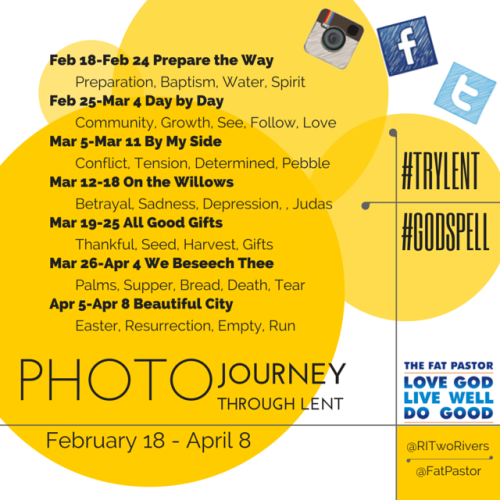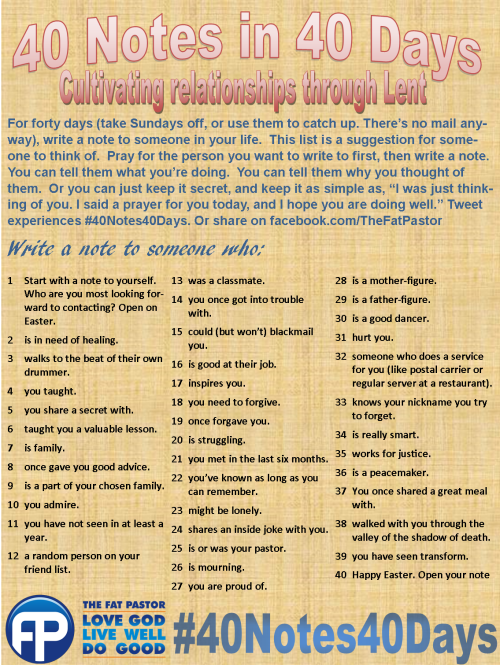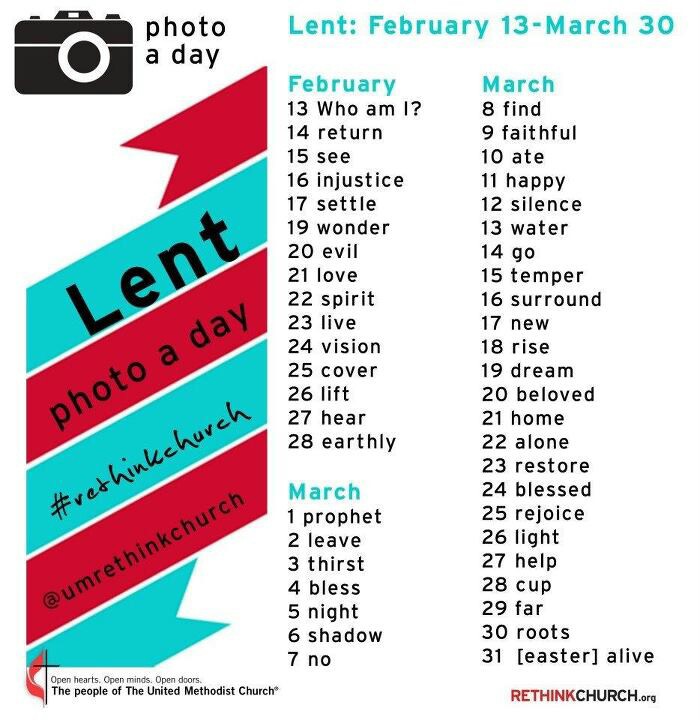I have written many times about being a Dad on this blog. Today I offer this space to a reflection that my oldest daughter wrote. She is a 17-year-old junior in high school. She was baptized in a United Methodist Church. She was confirmed in a United Methodist Church. She has danced in the aisles and led from the pulpit in United Methodist Churches. Last summer at a United Methodist Church camp called Little Grassy, she found an intimacy with Christ and community that she had never before experienced.
On Ash Wednesday she had a powerful spiritual experience and sent me a message the next day. I was moved by this incredible text and asked if I could share it with a wider audience, but wasn’t sure when I would find the right time. This past weekend I was in a small group of clergy talking about our upcoming General Conference. We were hearing informal reports from a General Conference delegate about the work they are doing to build coalitions and initiate reform in the Church. One of pastors asked, “What can we do? What can we do now about General Conference so that we can see the church that we want?” Their first answer was simple: “Pray.”
It was then that I decided, with Ellie’s permission, to share her reflection. After reading it to that group, they encouraged me to share it to a wider audience. Again, with Ellie’s permission, here it is. In a way, this is her response to the question, “What can we do?”
An Ash Wednesday reflection, by Elizabeth McCoy:
I have never known what it feels like to be hungry, not really. Sure, I’ve felt the absence of food in my stomach, the gurgling annoyance because I woke up too late to eat breakfast or couldn’t find a good snack at home. But that is not hunger, not really. I have always lived in a house full of food. With parents who have the means to keep me fed.
This Lent I am fasting. I will not consume anything but water while the sun is in the sky. I will do this because I want to know what it feels like to be hungry. I am not stepping on this Lenten path so that my peers will praise me for my righteousness. I do not yearn for a pat on the head from my elders, telling me how mature and dedicated I am for taking on such a task. I want to sacrifice something I take for granted and sit in the unpleasantness that its absence will surely provide.
This spring, General Conference will come together and vote on whether I belong in the church. They will sit in a giant room with loudspeakers blaring legislation that will determine if my ‘lifestyle’ has a place in the church that has raised me. When I came out to my congregation last year, I wasn’t afraid that they wouldn’t accept me, not really. Even though my congregation is mainly made up of folks from older generations, love has always been the defining factor in their vocabulary, and I have never questioned their empathy. Sure, I’ve felt the unease that comes with holding hands with your girlfriend in public, and my palms were sweating when I called my self ‘queer’ from the pulpit; but I’ve never been afraid, not really.
This Lent I expect to be closer to God than I ever have been, because I am hungry. I am hungry for justice. I am sick of my presence being debated. I am a member of the United Methodist church. I love the United Methodist Church, but I cannot remain loyal to an institution that believes my right to love is debatable.
On Ash Wednesday I was reminded of the power of testimony before God. With ashes spread, I vowed, on behalf of my siblings in Christ, to never forget who and who’s I am. I am a holy. My dedication to this ancient practice does not prove my worth to the church, it is not an apology for my queerness. I have nothing to apologize for. Instead, this Lent my hunger will drive me to remember the very foundation of my faith. I am good, as God created me. God has called me good. Indeed, I am very good.
I may not know what true hunger feels like, but rest assured I will be hungry this Lent, for more reason than one.


















